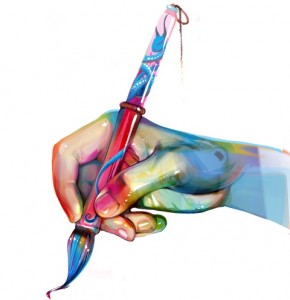 I believe that DBT is better understood through mindfulness skills training and Art Therapy. A DBT approach into both individual and group art therapy serves as an alternate means of understanding key DBT concepts, which can otherwise be fairly complex. I have developed a unique arts-based approach that integrates the two modalities of therapy.
I believe that DBT is better understood through mindfulness skills training and Art Therapy. A DBT approach into both individual and group art therapy serves as an alternate means of understanding key DBT concepts, which can otherwise be fairly complex. I have developed a unique arts-based approach that integrates the two modalities of therapy.
The DBT program of therapy is aimed at treating Borderline Personality Disorder, but has also been used to address and help people with various other mental health issues. It was originally developed by Marsha Linehan and is taught in community mental health teams, hospitals, and private practice across the world.
This form of therapy can help one go from having little insight of themselves or why life appears to be dysfunctional, to being an expert on behavior management, interpersonal effectiveness, and distress tolerance. Like any other therapeutic endeavor, DBT is a commitment. It is not to make your life more difficult. Behavior is partly learned and partly habitual, and to really create new experience, these skills must be practiced, over and over, until they become new habits, replacing the destructive ones now.
DBT teaches four skills sets that can reduce one’s vulnerability and help keep the balance of emotions. These skills sets are:
Distress Tolerance: promotes the increase of resiliency and the ability to lessen your reaction to painful events.
Mindfulness: staying present in the moment while focusing less on the painful experiences of the past or future. It will also help you to reduce negative thoughts/ judgments about yourself and other.
Emotion Regulation: Recognize more clearly what you feel and not become overwhelmed by it.
Interpersonal Effectiveness: Gives you new tools to express your beliefs and needs, set limits, negotiate solutions to problems- all while protecting your relationships and treating yourself and others with respect.
Art therapy supports the important tenets of DBT by exploring these coping skills with art materials and directives.. Coping skills help clients to identify emotions, implement grounding techniques, and use self-regulation strategies to reduce maladaptive behaviors. Art therapy accesses emotions quickly because art making uses the intuitive brain process.
